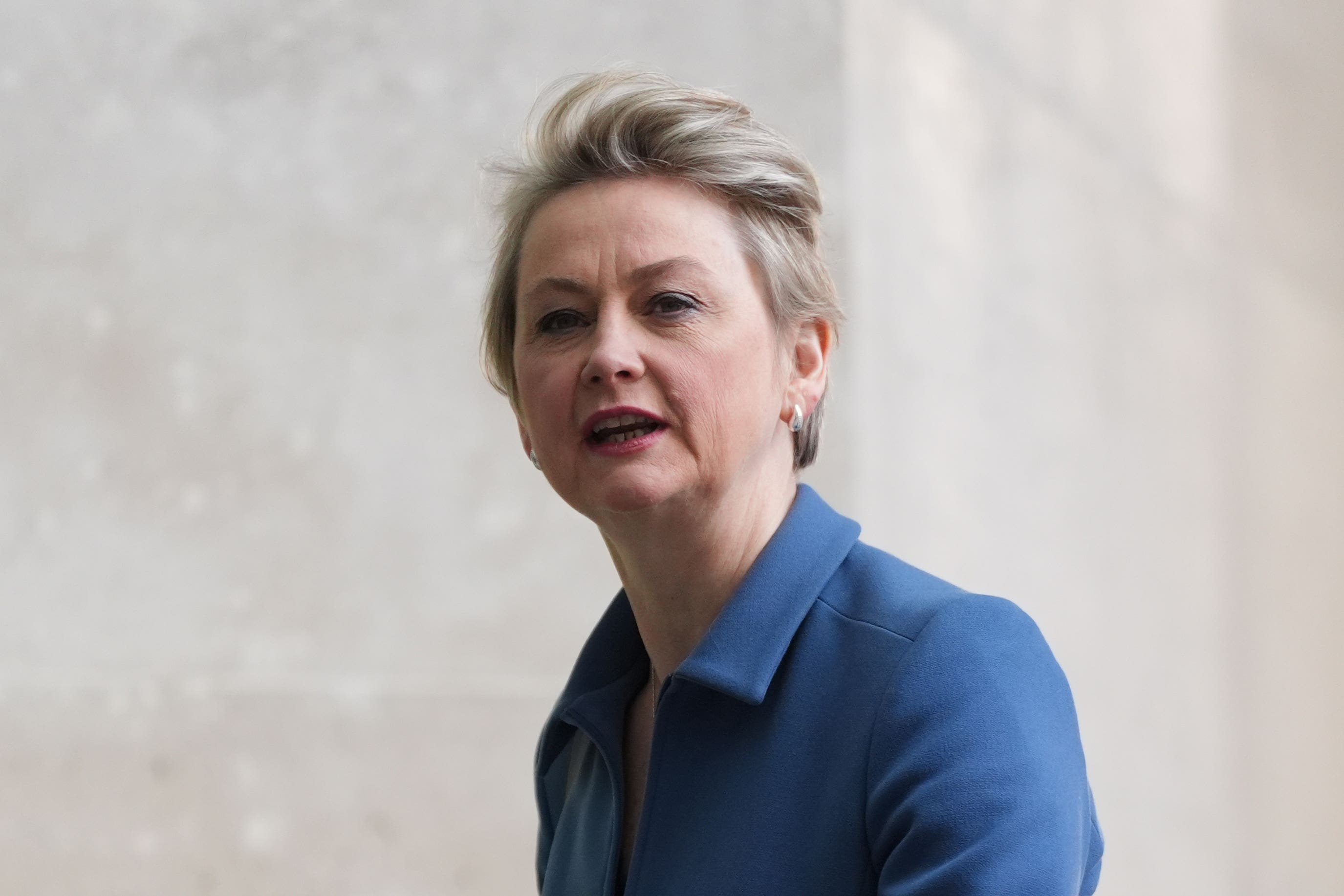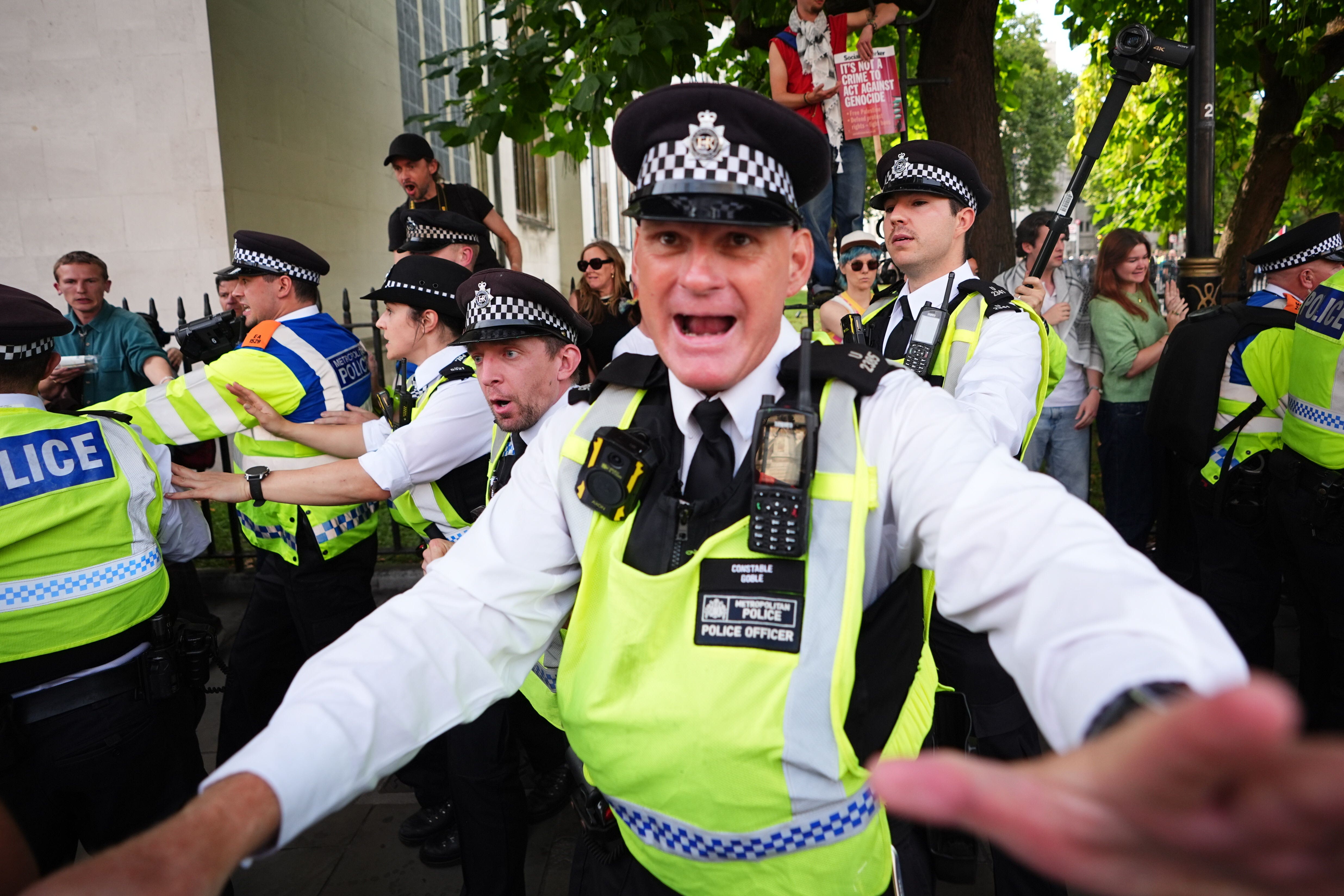
A legal challenge over the ban of Palestine Action as a terror group is not “exceptional” and should not be heard at the High Court, lawyers for the Home Office have argued.
The group’s founder Huda Ammori is taking legal action after then-home secretary Yvette Cooper decided to proscribe the group as a terrorist organisation, making support or membership of the group a criminal offence, punishable by 14 years in prison.
According to campaign group Defend Our Juries, more than 1,600 people have been arrested since the ban came into effect on 5 July.
Ms Ammori was cleared by Mr Justice Chamberlain to challenge the ban in court after finding that two arguments put forward on her behalf were “reasonably arguable”.

At a hearing on Thursday, barristers for the Home Office said Ms Ammori could bring her legal challenge to the home secretary and then the Proscribed Organisations Appeal Commission (POAC), rather than the High Court for a “judicial review”.
Sir James Eadie KC said Mr Justice Chamberlain’s approval of the review would be a “recipe for chaos” and could lead to defendants in criminal cases challenging the ban as part of their defence.
In written submissions, he said: “It would be a recipe for chaos which would arise in the context of every single proscription prosecution for every single proscribed organisation.”
However, this was countered by her lawyer Raza Husain KC, who told the court: “It is the court, not the parliament, who is the guardian of the rule of law. The judicial review is a constitutional practice.”
He argued that the ban could affect hundreds if not thousands, given that the group receive “widespread support” and that the proscription had produced “ongoing civil disobedience”.
The case is due to be heard at a three-day hearing in November, but the Home Office has been given the green light to challenge Mr Justice Chamberlain’s decision.
Sir James Eadie KC, for the Home Office, told the Court of Appeal in written submissions that proscription is a “pre-emptive mechanism designed to degrade the structures and capabilities of an organisation” and is a “deliberately, a strong executive measure, which has immediate practical consequences”.
Mr Eadie KC added that the type of High Court challenge Ms Ammori is set to have heard in late November is “a remedy of last resort” and that Mr Justice Chamberlain was wrong to grant permission.

“There is nothing exceptional about the respondent’s case that justifies allowing her to avoid the statutory scheme,” he said.
He added: “It would require an exceptional case before judicial review would cut in.”
Ms Cooper announced plans to ban Palestine Action days after the group claimed responsibility for a stunt in which two Voyager planes were damaged at RAF Brize Norton on 20 June.
Speaking on 23 June, she said that the vandalism of the two planes, which police said caused an estimated £7m of damage, was “disgraceful”.
Ms Ammori lost a High Court bid to temporarily block the ban from coming into effect in early July, and the Court of Appeal later dismissed a bid to appeal against that decision less than two hours before the ban came into force on July 5.
But following a hearing on 21 July, Mr Justice Chamberlain ruled on 30 July that Ms Ammori could go ahead with her legal challenge, finding that it could be argued that the ban “amounts to a disproportionate interference” of her rights to freedom of expression and freedom of assembly.

A second argument, that Ms Cooper failed to consult Palestine Action on the ban, was “in breach of natural justice”, and could also go to a full hearing.
The Court of Appeal was also told that Mr Justice Chamberlain’s finding that a POAC appeal would unlikely to be heard before next summer, compared with the High Court challenge now due in November, was “unevidenced and wrong”.
Mr Husain KC, for Ms Ammori, said the High Court judge “rightly” found that the POAC was not the only place challenges against similar bans could be heard and that it “was not a suitable alternative remedy”.
He added it was “at least arguable” that Ms Cooper had not acted for national security reasons, but for other, “improper” purposes, and that Ms Ammori should be able to challenge the Home Office over potentially failing to properly consider the discriminatory effect against Palestinians or people who support Palestine.
In a statement ahead of the hearing, Ms Ammori said: “It’s deeply troubling that the previous home secretary decided to try to stop a full legal review of her widely condemned decision to ban a protest group as a ‘terrorist’ organisation for the first time in British history.”
She continued: “A successful appeal would not only shield an unlawful ban from scrutiny — it would deny justice to thousands of people whose fundamental free speech rights have been violated by this ban.”
At the end of the hearing before the Lady Chief Justice Baroness Carr, Lord Justice Lewis and Lord Justice Edis, the judges reserved their decision.







